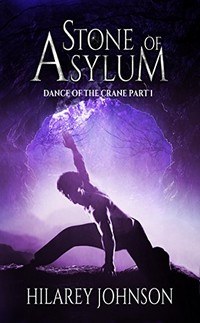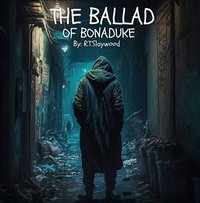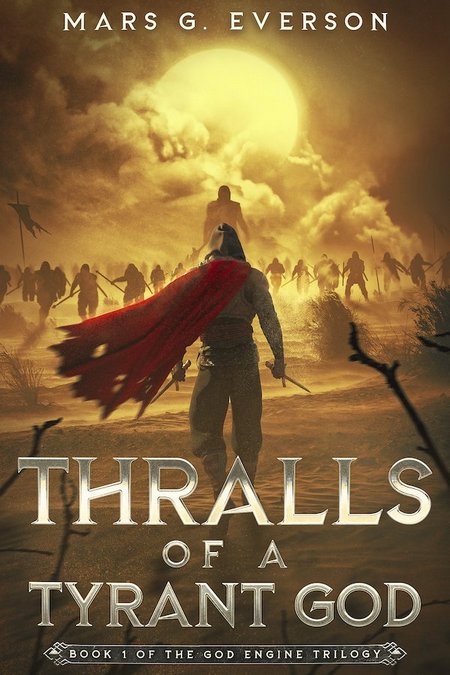by Pierce Brown
DETAILS:
Series: Red Rising, #6
Publisher: Del Rey Books
Publication Date: July 25, 2023
Format: Hardcover
Length: 672
Read Date: August 14-24, 2023


This Post
Yeah, this isn’t going to be my typical kind of post. I know deep in my bones, the way you know about a good melon, that if I tried my typical approach I’d probably finish this in December. And since I don’t have that kind of patience—and this book was due back at my library on August 19. I’m in deep sh…aving cream already.
So, I’m just going to mention a few things I think are worth saying—and hopefully think of a conclusion to wrap it all up (but no promises).
 I need to start with the fact that I went into this with a wrong assumption—I misunderstood something I saw Brown say on Twitter some months ago and thought that this was the finale of the series. I started wondering pretty soon how that was going to be the case, but it took me far too long to admit that I misunderstood him and shouldn’t expect any kind of bow to be put on things by the end of Light Bringer. Once I gave that up, most of my lingering questions about pacing and character went away.
I need to start with the fact that I went into this with a wrong assumption—I misunderstood something I saw Brown say on Twitter some months ago and thought that this was the finale of the series. I started wondering pretty soon how that was going to be the case, but it took me far too long to admit that I misunderstood him and shouldn’t expect any kind of bow to be put on things by the end of Light Bringer. Once I gave that up, most of my lingering questions about pacing and character went away.
 Lyria. If Brown had done nothing else impressive with the post-Morning Star books, what he’s done in creating and growing this character would justify the time reading them. I just cannot get over her. At this point, I enjoy her more than Darrow, Virginia, or the rest. Kavax and Sevro are the only characters that compete with her for my affection. Also, Brown did an excellent job of faking the reader out when it came to her character arc after the last book.
Lyria. If Brown had done nothing else impressive with the post-Morning Star books, what he’s done in creating and growing this character would justify the time reading them. I just cannot get over her. At this point, I enjoy her more than Darrow, Virginia, or the rest. Kavax and Sevro are the only characters that compete with her for my affection. Also, Brown did an excellent job of faking the reader out when it came to her character arc after the last book.
 Darrow grows more in these pages than he has since…maybe The Institute. Or probably with Lorn. And a lot of that has to do with the right book being given to him at the right time in his life. (maybe my libro-fixation makes me focus on that part, but, I’m right). I want to see this change in action more—but what Brown does here gives me a lot of hope for our hero. Assuming The Reaper is our hero by the end.
Darrow grows more in these pages than he has since…maybe The Institute. Or probably with Lorn. And a lot of that has to do with the right book being given to him at the right time in his life. (maybe my libro-fixation makes me focus on that part, but, I’m right). I want to see this change in action more—but what Brown does here gives me a lot of hope for our hero. Assuming The Reaper is our hero by the end.
 I really, really, really, really want to know how long Brown has been plotting out the major events of this novel—has he been building up to them since Iron Gold or before? Or were they things that came into focus when he started planning Light Bringer? It won’t change what I think of them (devastating, brilliant, etc.)—it’ll just help me understand how he works.
I really, really, really, really want to know how long Brown has been plotting out the major events of this novel—has he been building up to them since Iron Gold or before? Or were they things that came into focus when he started planning Light Bringer? It won’t change what I think of them (devastating, brilliant, etc.)—it’ll just help me understand how he works.
 The bonds between so many of these characters are fantastic. Particularly between the classmates turned colleagues turned friends turned enemies turned uneasy allies turned brothers. (or relationships that follow similar paths) How these people can be bound up so tightly with each other after all they’ve gone through is something else. So many times I start off thinking, “There’s no way that Darrow/Lysander/Victra/Whoever is going to trust them is there?” And then they do—and I buy it every single time, just the way that Darrow/Lysander/Victra/Whoever does. And I’m caught as off-guard as they are in the significant percentage of times they end up getting betrayed.
The bonds between so many of these characters are fantastic. Particularly between the classmates turned colleagues turned friends turned enemies turned uneasy allies turned brothers. (or relationships that follow similar paths) How these people can be bound up so tightly with each other after all they’ve gone through is something else. So many times I start off thinking, “There’s no way that Darrow/Lysander/Victra/Whoever is going to trust them is there?” And then they do—and I buy it every single time, just the way that Darrow/Lysander/Victra/Whoever does. And I’m caught as off-guard as they are in the significant percentage of times they end up getting betrayed.
 I cannot believe how often these people make me laugh—genuinely laugh. In the midst of all of the death, destruction, revenge, societal upheaval, and uncertainty—there’s a core humanity at work in them all.
I cannot believe how often these people make me laugh—genuinely laugh. In the midst of all of the death, destruction, revenge, societal upheaval, and uncertainty—there’s a core humanity at work in them all.
 After all these thousands of pages (especially when I count re-reads and audiobook listens)…how can Brown completely surprise me the way he does? I can’t even count how many double-crosses that become triple-crosses then go awry and end up becoming alliances that are quadruple-crossed in this book alone. (And that’s not a spoiler, if you’ve read the series, you know that’s going to happen—and I likely left off at least 5 backstabbings).
After all these thousands of pages (especially when I count re-reads and audiobook listens)…how can Brown completely surprise me the way he does? I can’t even count how many double-crosses that become triple-crosses then go awry and end up becoming alliances that are quadruple-crossed in this book alone. (And that’s not a spoiler, if you’ve read the series, you know that’s going to happen—and I likely left off at least 5 backstabbings).
 Speaking of stabbing…Brown’s action scenes—particularly when it comes to small groups of people fighting—one on one, two on two, one on five, etc.—are just great. He’s never been shabby at this, but it felt like he topped himself here. (as he has in each successive book).
Speaking of stabbing…Brown’s action scenes—particularly when it comes to small groups of people fighting—one on one, two on two, one on five, etc.—are just great. He’s never been shabby at this, but it felt like he topped himself here. (as he has in each successive book).
 Sevro, Sevro, Sevro…I felt so bad for him through so much of this book. Even before he inadvertently found out what happened to his family in Dark Age. But you never want to count the Goblin out, right?
Sevro, Sevro, Sevro…I felt so bad for him through so much of this book. Even before he inadvertently found out what happened to his family in Dark Age. But you never want to count the Goblin out, right?
 Although, the fox Sophocles just might have done a better job of breaking my heart. Not that it’s a competition.
Although, the fox Sophocles just might have done a better job of breaking my heart. Not that it’s a competition.
 There’s a fantastic potential spin-off series introduced around the mid-way point. I hope Brown doesn’t give it to us (although I’ll read it if he does), I think I’d prefer my imaginary version of it.
There’s a fantastic potential spin-off series introduced around the mid-way point. I hope Brown doesn’t give it to us (although I’ll read it if he does), I think I’d prefer my imaginary version of it.
 The bond that I referred to earlier is seen in loyalty, forgiveness (and the ability to work together when that forgiveness hasn’t been granted), and best of all, a humor based on shared experiences and attitudes. The humor in this book is almost never situational (too grim for that), or physical (outside maybe of Sophocles)—it comes from old friends being rude to one another, making a joke in reference to something that happened a decade or more ago, etc. And it works—you can’t help but chuckle alongside these men—even when they’re likely saying goodbye for the last time, they can make you laugh. Well done, Mr. Brown.
The bond that I referred to earlier is seen in loyalty, forgiveness (and the ability to work together when that forgiveness hasn’t been granted), and best of all, a humor based on shared experiences and attitudes. The humor in this book is almost never situational (too grim for that), or physical (outside maybe of Sophocles)—it comes from old friends being rude to one another, making a joke in reference to something that happened a decade or more ago, etc. And it works—you can’t help but chuckle alongside these men—even when they’re likely saying goodbye for the last time, they can make you laugh. Well done, Mr. Brown.
Let’s See If I Can Wrap This Up
I really think I could just keep going flipping back and forth through the pages of the book and coming up with more and more bullet points to ramble about. But who wants to read that? (especially now that I see that I’ve repeated myself)
I really wish I spent time in discussion groups, fan sites, etc. for this series, so I’d have known that this wasn’t the ending before I started. That preconceived notion really skewed things for a while. Oh well. Like I said before, once I started thinking of this as penultimate—everything clicked.
I do think it’s time for Brown to tie this up—as much as I love this series, readers can only take so many Master Plans that go awry when they meet other Master Plans only to uncover someone else’s Deeper Master Plan working against both.
But it’s been—and will be—quite the ride. These characters are so full of honor, and nobility (of various types), that even when they’re “on the wrong side” it’s hard to think poorly of them until they’ve turned into hypocrites or something. Brown gives us a great picture of so many people working for the common good—if only they could agree with what that is. Chess masters vying against one another to help their picture of the best for society to come about. Sadly, their moves aren’t made with game pieces, but with thousands or millions of lives at a time.
I’m, of course, ignoring the few giant vacuums of decency with a hunger for power and destruction that are also running through the pages.
In Dark Age (and I’m going to be vague just in case someone hasn’t read it yet)—there’s a scene when someone holds down a dying foe, cuts out two giant strips from their back to reveal their ribcage and organs—and pour salt on the wounds. There are a couple of scenes in this book that felt like that. (except for the fact that I was in my recliner sipping on something cool while reading). And with at least one of those scenes the person I was having my heart torn up about was a character I either was bored by or didn’t bother to form an opinion of until this book. But over the course of the novel, Brown’s able to get every one of these modified humans to become a person practically as real as any flesh and blood creature you run into.
It took me less than 50 pages into Red Rising to be awed by Brown and thousands of pages later, he’s still doing it to me.
Go read this series.

This post contains an affiliate link. If you purchase from it, I will get a small commission at no additional cost to you. As always, the opinions expressed are my own.

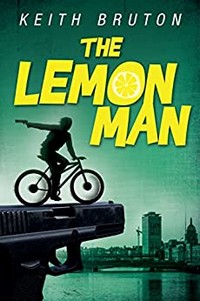 The Lemon Man
The Lemon Man

![]()









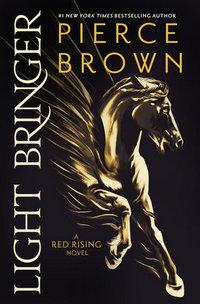
 I need to start with the fact that I went into this with a wrong assumption—I misunderstood something I saw Brown say on Twitter some months ago and thought that this was the finale of the series. I started wondering pretty soon how that was going to be the case, but it took me far too long to admit that I misunderstood him and shouldn’t expect any kind of bow to be put on things by the end of Light Bringer. Once I gave that up, most of my lingering questions about pacing and character went away.
I need to start with the fact that I went into this with a wrong assumption—I misunderstood something I saw Brown say on Twitter some months ago and thought that this was the finale of the series. I started wondering pretty soon how that was going to be the case, but it took me far too long to admit that I misunderstood him and shouldn’t expect any kind of bow to be put on things by the end of Light Bringer. Once I gave that up, most of my lingering questions about pacing and character went away.
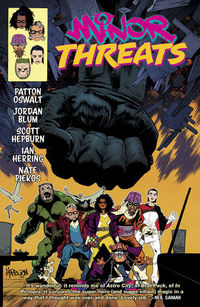

 This was a hard post to come up with a name for‡, essentially this post came from
This was a hard post to come up with a name for‡, essentially this post came from 